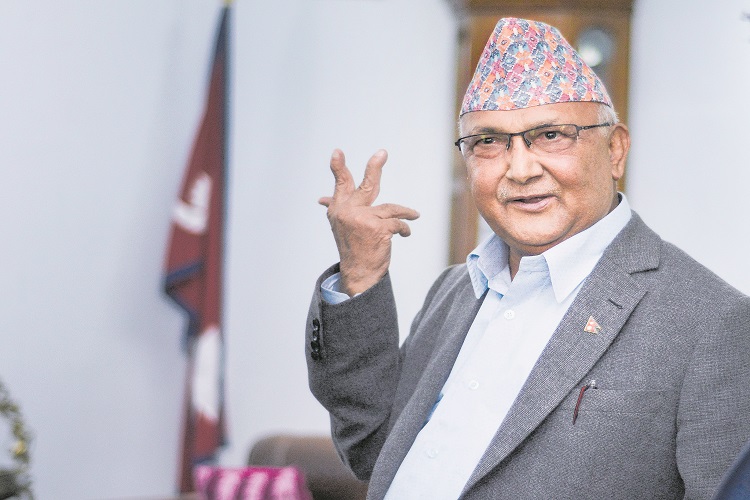Second wind

As political analyst Krishna Khanal points out, after a long time, the head of government in Nepal will have an unquestionable mandate to govern (see: Many hurdles ahead for Oli government, Page 2). Since the 2006 political changes, until the promulgation of the new constitution on September 20, 2015, successive governments were occupied with completing the peace and constitution process that started with the signing of the Comprehensive Peace Accord in 2006. After constitution promulgation, the focus shifted to holding the constitutionally-mandated three tiers of elections. Only after these elections was an environment created for the new constitution’s implementation.
KP Sharma Oli becomes the first prime minister to see to the institutionalization of the nascent federal set-up, as provided in the new constitution. With the merger between CPN-UML and CPN (Maoist Center) now all but assured, Oli will get to lead a strong government with a commanding majority in the national parliament. Not just that. His left alliance will also form governments in six of the seven federal provinces, barring Province 2. It is hard to think of a more favorable political climate for the new prime minister.
On the campaign trail, Oli had promised a new era of prosperity and stability. That will be a tall order. Most of the next few years will, perforce, be spent devising the right formula for division of spoils among the central government, the seven provinces and the 753 local bodies—in what is sure to be an acrimonious and arduous process. In this climate, it will be difficult for Oli to chart out a clear path for collective, national prosperity.
He could have better luck on stability, primarily because of the solid mandate he enjoys at all three levels of government. If there is one strong communist party following the left merger, handing over power to Maoist chairman Pushpa Kamal Dahal, as agreed, need not be very disruptive either.
Oli’s difficult relations with Madhesi parties could be more problematic. He will not find it easy to accommodate them in the new central government, much less accommodating their demands in the new constitution. Separately, nor will it be easy for him to deal with India and China, with their growing (and often competing) influences and expectations.
Oli’s mettle as a national leader was put to a serious test during his stint as the blockade-time prime minister. With challenges aplenty on both national and international fronts, it will not be any easier this time.
related news
Editorial: Nepal’s investment climate myths
April 26, 2024, 8:25 a.m.
Editorial: Urgent call for social harmony
April 19, 2024, 8:32 a.m.
End House impasse, once and for all
April 12, 2024, 8:35 a.m.
Editorial: Limit Everest expeditions
April 5, 2024, 5:09 a.m.
Editorial: Focus on transitional justice
March 29, 2024, 7:05 a.m.
Editorial: The opposition’s role in Parliament
March 22, 2024, 11:22 a.m.
Editorial: High hopes from sports minister
March 15, 2024, 5:36 a.m.
Editorial: Hope with the new coalition
March 8, 2024, 6:54 a.m.










Comments